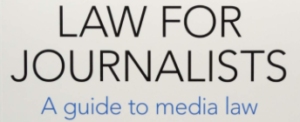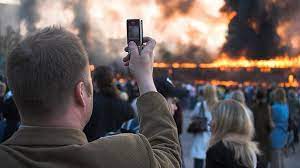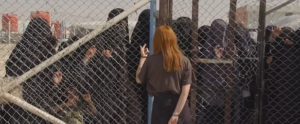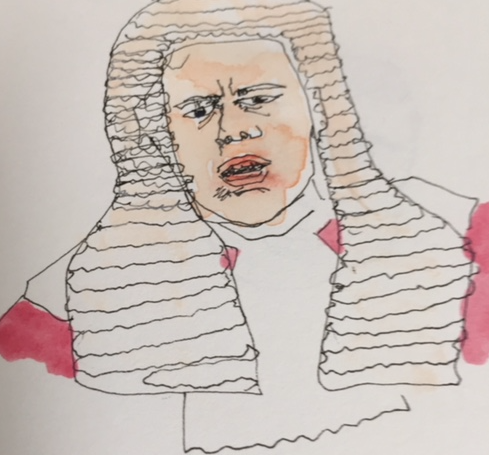- ‘Lies, damned lies etc…’ - 13th February 2026
- Missing in action - 12th February 2026
- Travel news again - 11th February 2026

During 23 years with the BBC, and 39 years in journalism (when he was taught to use clear, simple language, avoiding jargon), a background of proper TRAINING was always critical for our Editor, Welshman Phil Parry, but increasingly it is being ignored, and figures have now emerged showing that for ALL businesses in the UK, it is not viewed as essential any more.
Earlier he described how he was assisted in breaking into the South Wales Echo office car when he was a cub reporter, recalled his early career as a journalist, the importance of experience in the job, and made clear that the‘calls’ to emergency services as well as court cases are central to any media operation.
 He has also explored how poorly paid most journalism is when trainee reporters had to live in squalid flats, the vital role of expenses, and about one of his most important stories on the now-scrapped 53 year-old BBC Wales TV Current Affairs series, Week In Week Out (WIWO), which won an award even after it was axed, long after his career really took off.
He has also explored how poorly paid most journalism is when trainee reporters had to live in squalid flats, the vital role of expenses, and about one of his most important stories on the now-scrapped 53 year-old BBC Wales TV Current Affairs series, Week In Week Out (WIWO), which won an award even after it was axed, long after his career really took off.
Phil has explained too how crucial it is actually to speak to people, the virtue of speed as well as accuracy, why knowledge of ‘history’ is vital, how certain material was removed from TV Current Affairs programmes when secret cameras had to be used, and some of those he has interviewed.
He has disclosed as well why investigative journalism is needed now more than ever although others have different opinions, how the coronavirus (Covid-19) lockdowns played havoc with media schedules, and the importance of the hugely lower average age of some political leaders compared with when he started reporting.
 Proper training is absolutely central for journalists (particularly in the field of law), but it seems that publishing organisations can get away without doing it.
Proper training is absolutely central for journalists (particularly in the field of law), but it seems that publishing organisations can get away without doing it.
Its not just in journalism either – the problem affects all businesses in the UK.

According to data from Eurostat, the EU’s statistics agency housed in an anonymous-looking office building in Luxembourg, UK firms spend only half as much on training per employee as continental European ones. They train fewer workers, and give each of them less time in class, while the Learning and Work Institute, a think-tank, reckons that in 2019 bosses in the UK spent 28 per cent LESS in real terms training workers than they did in 2005 (while spending in continental Europe went up!).

In the media, though, this issue appears to be particularly acute.
I applaud the growth in ‘citizen journalism’ (where members of the public send in stories, and their own pictures, usually from a mobile phone), however it opens up a huge can of worms.
A properly trained journalist needs to check everything before publication, because there are enormous risks – for example he or she must ensure that privacy laws are adhered to, and has a full knowledge of the rules about identification (particularly of children).


When I started in journalism on the then largest paper produced in Wales, the South Wales Echo (SWE), the training lasted almost two years.
The paper has since been overtaken as the biggest in Wales, sells only a little more than 6,000 a day, and the ‘training’ is far less rigorous.
When I did it, first I faced four months basic journalism teaching in Newcastle (working on The Evening Chronicle and the morning paper The Journal), when exams including ones in law were taken. This was followed by several months writing stories at the main newsroom in Cardiff, three months on the Sub-Editor’s desk, then three months in a district office, before finally returning to complete the schedule in the Cardiff office, when I sat another set of exams.
Recent events have underlined how important this was.

A legal case was brought against the BBC when two teenagers were named unlawfully in court reports, flouting a judge’s ruling. The identities of the youths charged with a murder in Oxford were revealed on TWO BBC news broadcasts.
The mistake was made by BBC South television.
One of the boys was 15 while another was 17, and they were charged with the killing so were due to stand trial. The youths appeared for a preliminary hearing of their case, and it was the reporting of THAT hearing which breached the restrictions put in place by the court.

In news bulletins from BBC South at 6.30pm and 10.30pm, the defendants were named in full, with their ages given, as well as where they were from.
The Judge said it was a “clear breach” of the reporting restriction which had been put in place.
It’s not just in news either that there is danger – it comes in employing untrained ‘celebrities’ to front Current Affairs programmes such as BBC Panorama.


One such case is the use of Stacey Dooley to present programmes about serious subjects.
Before the transmission of ‘Stacey Dooley Sleeps Over’, Ms Dooley was in hot water over her lack of training or legal knowledge.
A glaring error was made in a transmission called ‘Stacey Meets the IS Brides’ when her voice-over HAD said: “We saw women raising their index finger in an IS salute”.
But this was completely wrong and several viewers who had seen the trailer about it, criticised her comment on Twitter, explaining that Muslims often use this gesture while praying.
An official complaint was made to the broadcast regulator Ofcom.

BBC journalist Anisa Subedar tweeted: “Raising the finger is NOT an IS salute. Does #StaceyDooley know us Muslims raise it everytime we pray (that’s 5 times a day) to remind us of the oneness of God?”
Writer Steve Rose said: “Skip to 1:35 to see Stacey Dooley perpetuate this ignorant falsehood, referring to the raised finger of Tawhid as an ‘IS salute’”.

The television ‘Loose Women’ star Janet Street Porter also condemned the programme, and the BBC News Press Team said the criticism was “disappointing”.
After a deluge of complaints the BBC announced that the episode was to be re-edited before its broadcast.
The News at Ten bulletin, which showed the trailer, was also removed from iPlayer.
 Officials finally admitted: “We wrongly described a gesture made by women filmed in a Kurdish controlled detention camp in Northern Syria as an ‘IS salute’. While IS have attempted to adopt this for their own propaganda purposes, for accuracy we should have been clear that many people of Muslim faith use this gesture to signify the oneness of Allah. We apologise for this error and have removed this description from the footage”.
Officials finally admitted: “We wrongly described a gesture made by women filmed in a Kurdish controlled detention camp in Northern Syria as an ‘IS salute’. While IS have attempted to adopt this for their own propaganda purposes, for accuracy we should have been clear that many people of Muslim faith use this gesture to signify the oneness of Allah. We apologise for this error and have removed this description from the footage”.
The BBC’s error was featured in most of the UK newspapers.

Ms Dooley has proclaimed proudly that being untrained, makes her a better ‘journalist’.
I beg to differ.
Ms Dooley, however, is not alone, and her mistake (as well as that of BBC South), serves to emphasise the vital importance of journalist TRAINING!

The memories of Phil’s astonishing 39-year award-winning career in journalism (when training and knowledge of journalist law were paramount), as he was gripped by the rare, crippling neurological condition, Hereditary Spastic Paraplegia (HSP), have been released in a major book ‘A GOOD STORY’. Order the book now!
Regrettably publication of another book, however, was refused, because it was to have included names.

Tomorrow – how an incredible number of controversies surrounding paedophile police officers has again shone the spotlight on other huge failings, amid mounting concern that a country of only 3.1 million people has FOUR forces.









